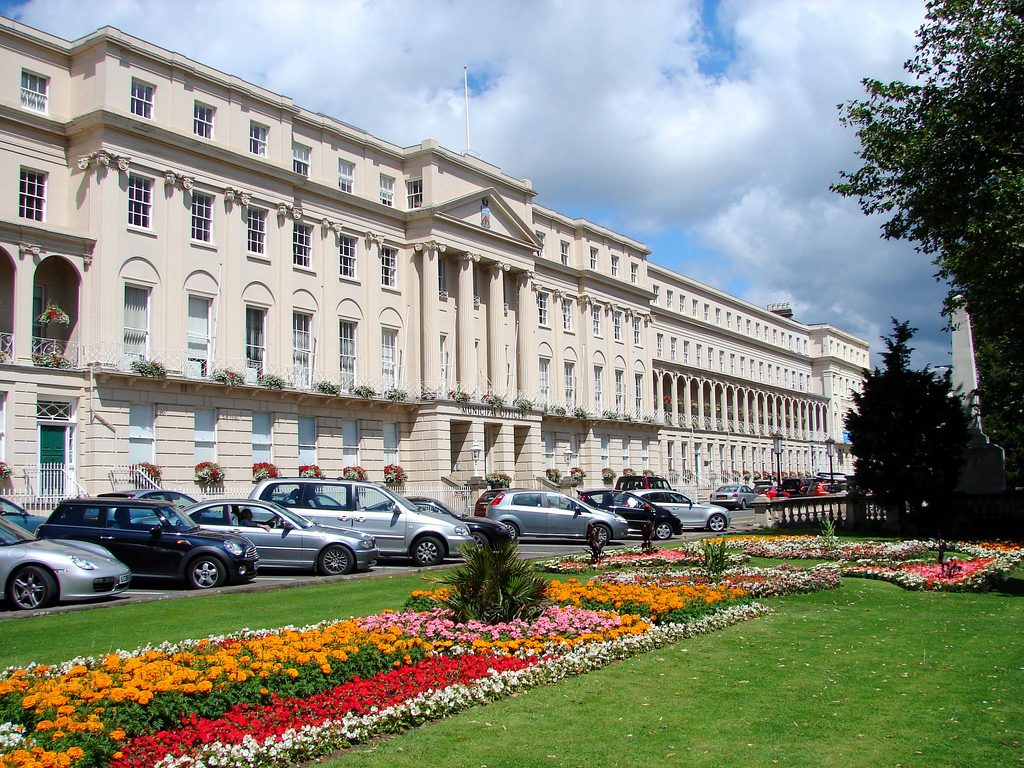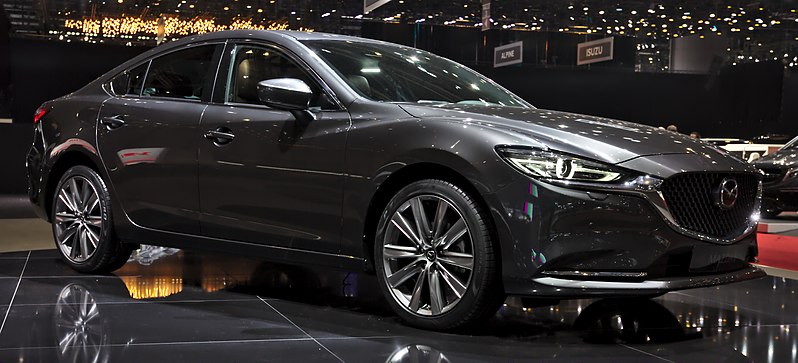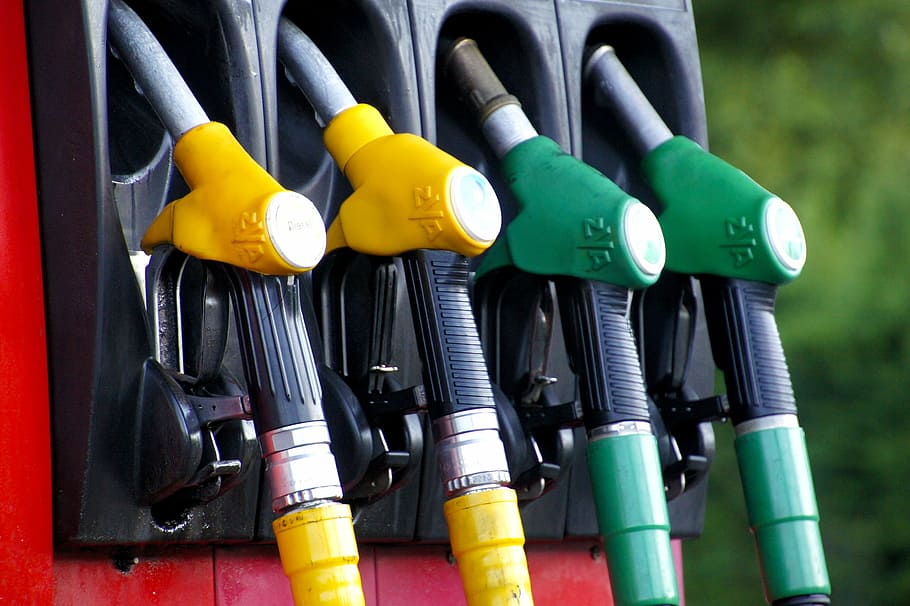How long before Cheltenham bans diesel cars? What do you do with the diesel you drive now and are electric cars really the answer?
In the last twenty years diesel cars have gone from being seen as the answer to efficient, economical travel, to having a reputation as one of the primary causes of pollution levels in the UK. The mindset of the motorist has changed, but this isn’t necessarily down to choice and the environmental situation we find ourselves in now is dictating the path we take when it comes to travel.
The UK, and indeed, Cheltenham are falling out of love with diesel motors and the number of registered cars that use the fuel dropped by 30% last year, showing just how quickly motorists’ behaviours and attitudes have altered. Not that long ago, this fuel was praised for giving drivers a greater MPG (miles per gallon), endless amounts of torque, practicality and cheap running costs and as a result, by 2011, diesel car sales made up 56% of the entire market.
So where did it all go wrong, and why are there pressures to ditch the dirty product?
The media have not helped. Many argue that the events of 2015 are the catalyst that caused such aggressive environmental policies, and it would be futile to argue that VW’s ‘Dieselgate’ scandal had no impact at all. The German car firm managed to trick ECU (Engine Control Units) into reading lower emission readings from in line nitrogen oxide particulate filters and convincing customers they are making environmentally friendly choices.
It dragged diesel’s name through the mud, and its appeal was lost almost overnight. In the first few months of this year, the market share slipped to just over one quarter. Combine this with the rising awareness of climate change, and consumers aren’t just concerned about what to do with their diesel cars, they’re afraid. Owners are facing an increasingly gloomy future with the fuel as rising road tax prices have seen most cars that drink from the black pump move up one or two bands and adding between £15 and £520 to the cost of first-time taxing. Diesel also currently costs 10p more per litre at the pumps than unleaded petrol, and so it’s no wonder the prices of second-hand diesels are decreasing.
But it’s not just these everyday niggles that present a real threat to owners of diesel cars. The UK have already heard that the production of ICE’s (Internal Combustion Engines) will be banned from 2040 to improve air quality. That’s not all though.
- Diesel drivers will face new ‘pollution taxes’ from 2020 to comply with air quality strategy.
- Diesel cars now required to pay £12.50 every time they enter the centre of London’s ultra-low emissions zone.
- Birmingham will set up its own clean air zone and a dozen others are considering it, like Bristol and Glasgow.
- Many councils are employing parking surcharges of up to 50% for even the cleanest diesel models.
- Increases in road tax and company car tax for diesels.
What’s the danger of diesel in Cheltenham?
Cheltenham Borough Council have recognised the problem of excessive nitrogen dioxide levels in and around the town, and so like other areas with illegal pollution figures, authorities are throwing everything they have at the war on motorists.

Here are the areas around the regency town that have been identified as having illegal levels of Nitrogen Dioxide.
- The A40 link road that connects Arle Court Roundabout with Princess Elizabeth Way Roundabout.
- 422 High Street.
- 2 Gloucester Road.
- Princess Elizabeth Way near Tewkesbury Road roundabout.
- 2 London Road.
- 81 London Road.
- New Rutland in Swindon Road.
The council have previously set 29 air quality measurement devices to gauge the monthly average of NO2 levels, and found that these locations were in breach of the threshold set by the EU.
In addition to this, Cheltenham are ahead of the rest of the country when it comes to carbon neutrality, and look to achieve this a decade earlier, in 2030. The clean air zone is one of the four ideas the council are exploring at this time, but if these policies have anything in common with the Boots Corner proposal, then they’re likely to cause similar controversy amongst decision makers and may not be implemented in the coming years.
The four ideas Cheltenham Council are clinging to.
- Promotion of zero-carbon emission transport and pedestrianisation.
- Providing low income households with a low-cost loan to update their home to achieve lower levels of carbon, with repayments coming from reduced energy costs.
- Plan to introduce ultra-low emission zone in Cheltenham being explored by civic chiefs.
- The closure of a section of Clarence Street, informally known as ‘Boots Corner’, which has been restricted to unauthorised vehicles since June 2018.
Regarding ‘Boots Corner’, supporters rallied around the council’s hollow slogan “Put people before traffic”, and according to Cheltenham Borough Council, within the first four months they discovered a 206% increase in cyclists, an 84% rise in pedestrian footfall and an 85% drop in the number of vehicles. On the surface, this appears to be progress and you cannot dispute the facts. However, when the facts are subjective, as in this case, it is easy to de-bunk any argument for this attempt at traffic management.
‘The fumes our right on our door step…we can’t get away from it’
Sandra, resident of Saint Georges St
Opponents of the scheme have assessed the issues raised by delivery and access vehicles who have had trouble parking in adjacent roads around the Promenade. They say the scheme has merely forced vehicles into other streets, and exacerbating congestion and pollution there instead. The parliamentary candidate for Cheltenham, Alex Chalk, has been open with his criticism of the trial and has called for the scheme to be reversed before more damage is done.
‘It’s definitely not good for my son’s health, and it is something you worry about’
Ela, St Paul’s resident
“I am deluged with complaints about the misery it is causing. It’s not the answer. All it’s managed to do is funnel the traffic into St Georges Street, where the congestion is worse than ever.”
“In places like Cheltenham for example, we can do so much more. Net-zero by 2050 is a fantastic goal and we’re the first in the G7 to do that. What matters now is how you go about achieving it. Technology is going to be important, so we need to improve electric cars, invest in battery technology and also charging points.”
‘I couldn’t believe the change in the volume of traffic. There was so much more after the road [Clarence St] closed’
Sandra, Saint Georges St
Boots Corner is a metaphor for how we reduce pollution levels nationally, without damaging the efficiency with which people move themselves and goods from A to B. The access that residents have had to give up here, is reflective of the sacrifices we will have to make in order to become compliant with current and future emission standards.
So, should you be pressured to give up your diesel car because of this?
To some degree, the authorities have relaxed their attack on drivers, and have made compromises for LGVs and HGVs which have lower levels of NO2 attributed to them. The council feel it would be counter productive to reduce the frequency of busses and goods lorries. Smaller gains have been made instead and upgrading the Stagecoach fleet to Euro 6 standard has helped reduce the carbon footprint of local public transport by 17%.
Despite this, diesel is still more chemically energy efficient than petrol and new Euro 6 standard diesels shouldn’t be much more harmful than petrol cars. The particulate filters are designed to target soot and nitrogen oxides, the pollutants that are linked to causing ill health.
The truth is that many countries, including the UK, have committed to phase out internal combustion engines by 2040, but the reality is most of the world will still be heavily reliant on fossil fuels for many years, if not decades to come.
The majority of motorists who do long distance trips and motorway commutes will still be financially better off by sticking to their diesel runabout, rather than a larger expenditure on an electric car and the sale of their daily drive. Most observers agree that this isn’t likely to be an overnight change and switching mainstream fuel sources, whether its hydrogen, electric or diesel, doesn’t come easily or cheaply.

Diesel car prices are falling, but not plummeting. There’s not a massive variation between petrol and diesel used prices, and if you’re looking for an upgrade anyway then the scrappage schemes currently on offer are worth taking advantage of. Mazda are offering up to £8000 off of selected new cars when you scrap your car (that has to be registered before September 2009).
The best thing to do is plan to take the jump to hybrid or electric with your next car or even your next car again. At the moment it is more financially savvy to stay with your diesel motor and let a better charging infrastructure develop while you wait.
